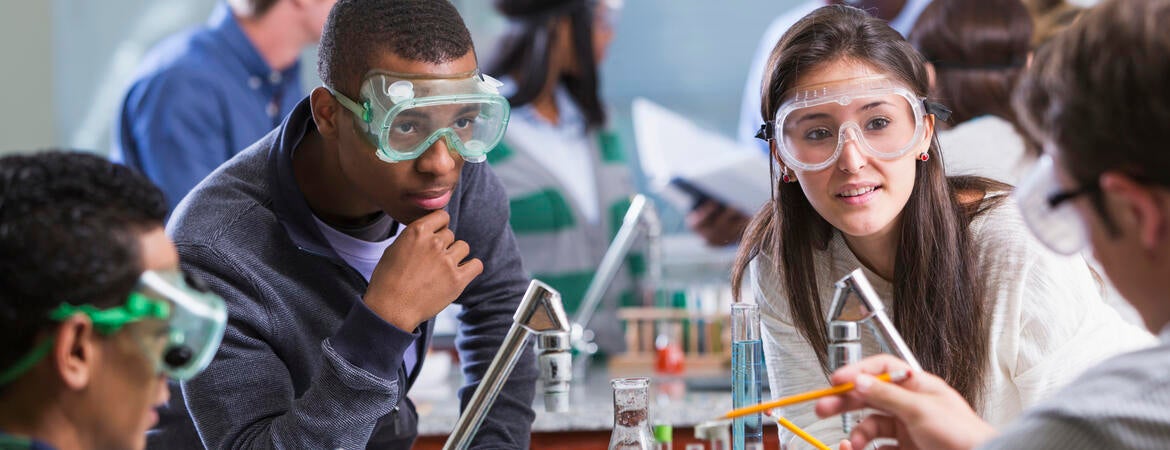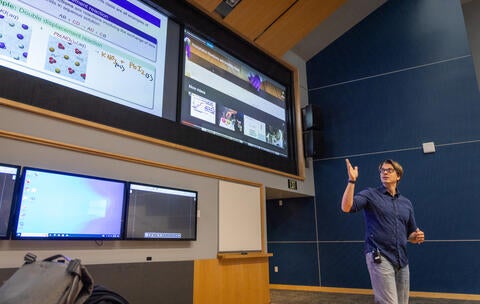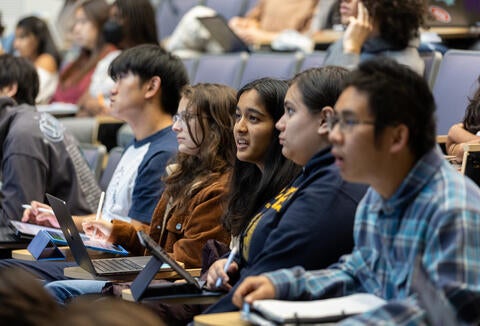
The University of California, Riverside, is transforming undergraduate chemistry, allowing students multiple opportunities to demonstrate knowledge while reducing the high stakes of traditional exams. Educators believe the approach will improve outcomes for underserved students.
The three-year project is supported by a $700,000 National Science Foundation grant and results of using this “mastery grading system” in a smaller pilot study were promising.
The traditional model of infrequent, high-stakes exams, such as midterms and finals, has shown inequities in learning outcomes. Students who are first-generation college attendees, recipients of financial aid, or members of historically underrepresented groups in STEM fields tend to do worse with this method of assessment.
The new program flips this model, emphasizing frequent assessments starting in the second week of class. Students are tested weekly on smaller units of material and can retake tests on the same content, though the specific test questions change.
"By giving students more chances to succeed, we hope to make exams less of a stress point and more of a learning tool,” said Joshua Hartman, UCR chemistry professor and co-principal investigator.
In a pilot study, the mastery grading system, combined with online course materials through the Open Learning Initiative, led to a roughly 10-point improvement in performance across all student groups. Most strikingly, underserved populations—often at a disadvantage in traditional testing environments—performed nearly on par with their peers.
The program also incorporates growth mindset interventions to help students develop cognitive strategies and learn more effectively. These efforts are being extended beyond UCR to chemistry departments at Mt. San Antonio College and Mt. San Jacinto College, ensuring the approach benefits a broader range of students in varying academic environments.
“Instructors often worry that students carry knowledge gaps from previous disruptions like the pandemic,” said Jack Eichler, UCR chemistry professor and co-principal investigator of the grant. “This program offers tools to close those gaps while maintaining academic rigor.”
Eichler hopes the project will inspire changes in faculty attitudes toward assessment. “If we can shift the mindset from grades identifying the best students to grades showing mastery of content, we can help more students succeed without inflating grades,” he said.
By addressing long-standing equity issues in introductory STEM courses, the initiative has the potential to reduce high rates of failure, withdrawal, or low grades that disproportionately impact underserved students. These barriers can discourage students from continuing in STEM fields, creating a ripple effect that limits diversity in science and technology professions.
Ultimately, the team’s goal is to inspire broader adoption of mastery grading across disciplines. “Higher education has a lot of inertia,” Hartman acknowledged. “But this approach isn’t about overhauling curriculum; it’s about rethinking assessment. That’s a lower barrier to implementation.”





